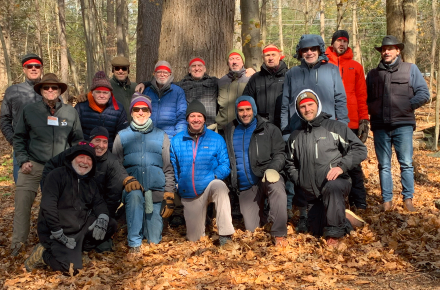The Incredible Power of Kirtan Kriya: A Conversation on Brain Health and Longevity with Dr. Chris Walling

Imagine that you could do just 12 minutes of yoga practice every day—and live longer, stay healthier, feel happier, and think more clearly. You’d do it, right?
If you answered yes, then get started right now. According to clinical psychologist and yoga therapist Chris Walling, doing 12 minutes daily of the Kundalini Yoga practice known as Kirtan Kriya is proven to enhance brain and mental health, increase longevity, and keep your mind sharp.
“Not only can this protocol help people live longer and better, it also can also alleviate a lot of chronic illnesses,” Chris says. “People who do this practice are buying themselves quite a few years on the tail end.”
A Multisensory Intervention
Chris describes Kirtan Kriya as a “multisensory intervention,” combining breath, mudra (finger movements), mantra, and visualization to create far-reaching effects. Its benefits for health and longevity have long been recognized within the Kundalini Yoga lineage, but Kundalini master Yogi Bhajan and his student Dharma Singh Khalsa, MD (cofounder with Kirti Khalsa of the Alzheimer’s Research and Prevention Foundation) set the stage for ongoing scientific inquiry into the nature and impact of this powerful practice.
“Once it was investigated from the clinical angle, researchers discovered a whole host of brain health–supporting features,” says Chris. “Through the last couple of decades, research at top-tier academic research hospitals and institutions in the United States and all over the world have discovered that this kriya, when practiced regularly over a period of eight weeks, begins to improve a whole range of measures, from cognitive performance on memory testing all the way to cellular changes.”
A groundbreaking study at the University of California Los Angeles (UCLA), where Chris was executive administrator for the university’s Longevity Center, showed that regular practice increased telomerase—the enzyme linked to structures at the ends of our chromosomes, which affect how our cells age. In fact, telomerase was increased by 43 percent, the largest increase ever recorded. Other studies on the practice have shown that it improves blood flow to the brain, reverses memory loss, eases depression and decreases inflammatory genes while increasing healthy ones.
Research like this makes it clear that Kirtan Kriya can be a potent approach to preventing Alzheimer’s disease, as well as geriatric depression, which often resembles Alzheimer’s in its symptoms, says Chris, who serves as chairman of the Alzheimer’s Research and Prevention Foundation’s Education Advisory Committee. Within a few weeks of beginning a Kirtan Kriya practice, he says, people turn around—suddenly shaking off brain fog and forgetfulness.
















































